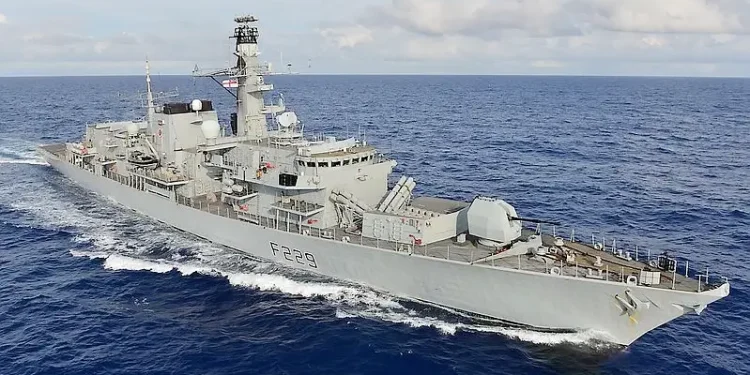the UK Foreign Secretary has embarked on a crucial diplomatic visit to Bahrain and Jordan. With tensions escalating in the Middle East, this visit aims to strengthen ties, encourage ceasefires, and support humanitarian aid efforts.
UK’s Diplomatic Engagement in the Middle East
Reaffirming Partnerships in Bahrain
The Foreign Secretary’s visit underscores the UK’s ongoing commitment to maintaining stability in the Gulf. Bahrain, a long-standing ally, is a critical partner in these efforts.
The Foreign Secretary held talks with senior Bahraini officials, emphasising the UK’s support for a ceasefire in Gaza and Lebanon, as well as reinforcing the importance of collaboration to prevent further escalation.
His visit also included a tour of HMS Lancaster, a UK Royal Navy vessel patrolling the Gulf to monitor and deter threats. The UK’s presence in the region highlights its commitment to safeguarding critical maritime routes, ensuring commercial shipping remains safe.
“The situation is incredibly dangerous and further escalation or miscalculation in the region is in no one’s interests,” he stated.
UK-Bahrain Diplomatic Engagement |
Focal Areas |
|---|---|
| Meeting with senior officials | Promoting ceasefires in Gaza, Lebanon |
| Tour of HMS Lancaster | Monitoring and deterring maritime threats |
| Reinforcing economic ties | Trade and investment opportunities |
Building Strong Ties in Jordan
In Jordan, the Foreign Secretary’s agenda centres on both security and humanitarian efforts. He met with Jordanian Foreign Minister Ayman Safadi to discuss the immediate need for humanitarian aid access to Gaza.
Jordan’s pivotal role in delivering aid to the region is crucial, and the UK is keen to support these efforts to ensure aid reaches those most affected.
The UK’s broader strategy includes fostering economic ties, given that Jordan and Bahrain play strategic roles within the Gulf Cooperation Council.
The Foreign Secretary highlighted trade relations worth over £57 billion with the region, emphasising how deep-rooted partnerships help in achieving shared security goals.
Iran’s Influence and the Call for Restraint
Central to these discussions was the issue of Iran’s involvement in the region. The UK continues to condemn Iranian actions that threaten stability. The Foreign Secretary reiterated the UK’s position, urging Iran and its proxies to halt their disruptive activities.
By working closely with regional allies, the UK hopes to exert diplomatic pressure and encourage a shift towards peace.
What This Visit Means for UK and Regional Security
The visit is not just symbolic; it represents a critical opportunity for the UK to reaffirm its influence in the Middle East. With British personnel stationed in the Gulf, the UK’s physical and diplomatic presence demonstrates its steadfast commitment to long-term stability.
It also shows that the UK is ready to bolster its partnerships, addressing both immediate security threats and future economic cooperation.
- Expected Outcomes:
- Reinforced UK presence in the Gulf through HMS Lancaster patrols.
- Strengthened diplomatic ties with Jordan and Bahrain.
- Continued pressure on Iran for regional restraint.
The Way Forward
While this diplomatic visit alone may not resolve the complex tensions in the Middle East, it lays the groundwork for future engagements.
The UK’s commitment to maintaining diplomatic channels and strengthening partnerships with regional allies is crucial for securing peace, stability, and humanitarian aid. In addition, this approach facilitates cooperation and trust-building with key stakeholders.
Meanwhile, collaborative efforts enable the UK to develop innovative solutions, ultimately enhancing its influence in the region. Ultimately, the UK’s long-term vision is to cultivate sustainable partnerships with Gulf states, transcending immediate crises and fostering enduring prosperity.
The Foreign Secretary concluded:
“Our nations share deep-rooted partnerships across defence, trade, and security, which I look forward to building upon.”
This statement reflects the UK’s commitment to not only addressing current conflicts but also setting a foundation for future cooperation and stability.
Sources: THX News, Foreign, Commonwealth and Development Office & The Rt Hon David Lammy MP.









